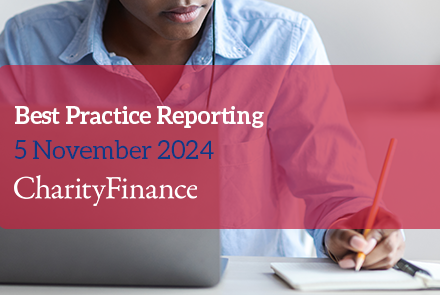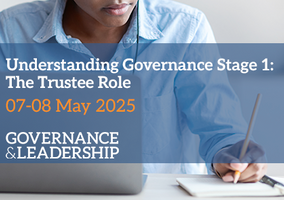In the current economic climate where fundraising from funders and the public alike is a tough ask, it is important that you sell your charity in the best possible light. We all know that funders will look at your statutory accounts and therefore they need to reflect well on your organisation to provide key messages in a way that encourages them to fund you. Our half day online course will give the tips on best practice reporting in the sector and show you how to think about your Trustees report differently. It is much more than a compliance document and an opportunity to ‘tell your story’ in an engaging way.
This course will take place online via Zoom.
A £40 discount is available to Charity Finance subscribers.
Speakers
-
Helena Wilkinson
Helena is a Partner and Head of Charities at Price Bailey, she is a charity specialist having worked with in the sector for over 30 years . She was Vice-Chair of ICAEW Charity Community until December 2019, is a recognised charity expert, writes for national/charity press and regularly presents at events. She has worked on the ‘other side of the fence’ as 7 years as Finance Director in a charity enabling her to give innovative and pragmatic advice as a result. Her roles within the industry have included financial management, corporate governance and strategic planning. She writes the Top 100 analysis of charity reporting for Charity Finance every year In the Autumn which highlights areas of best practice and common trends.
-
Suzanne Goldsmith
Suzanne is a qualified chartered accountant and Director at Price Bailey and has worked as an auditor and advisor to the charity and not for profit sector for 20 years. Suzanne trained and qualified in Cambridge, where she is still based today and her experience and knowledge covers a variety of organisations within the sector including charities, academies, higher education, and research organisations in receipt of grant funding. Suzanne’s portfolio of clients has grown to include clients and contacts from around the Eastern region and she often contributes to publications, blog posts and seminars on relevant sector topics.
Suzanne has been an auditor all throughout her professional carreer and admits that she loves the variety being an advisor in the sector gives her, every day bringing something different and being part of a team who advise on technical matters and best practice, financial management, corporate governance, strategic planning to name a few! She has also held a number of Trustee roles and is currently Vice Chair of Trustees and Chair of the Resources Committee of a multi academy trust in Suffolk. In these roles she has gained valuable knowledge and experience of the practical aspects of governanace, leadership and charity management.
Programme
|
10:00 |
|
|
|
10:05 |
|
|
|
10:40 |
|
|
|
11:00 |
BREAK |
|
|
11:15 |
|
|
|
11:45 |
|
|
|
12:15 |
BREAK |
|
|
12:30 |
|
|
|
12:50 |
Conclusions and Q&A |
|
|
13:00 |
End |
Prices
(prices exc VAT)
Charity Finance subscriber - £119
Standard charity rate - £159
Corporate Charity Finance subscriber - £300
Corporate delegate - £400
For group bookings email [email protected]
FAQs
When will I receive course materials and Zoom link to access the course?
After booking you will receive the following correspondence:
1 week before the course – an e-mail with your joining information, this includes the course programme and any other relevant materials.
1 day before the course – an e-mail with your final information, this includes the Zoom link, course programme any other relevant materials.
When will I be invoiced for my booking?
Invoices are manually processed so this will be sent to you by our events team shortly after your booking.
Will presentation slides be provided?
Presentations are provided in advance for the majority of our courses but this can vary and is down to the course leader’s discretion.
Will the sessions be recorded?
We do not record our courses as we feel this gives delegates the opportunity to have more open discussions and freely ask questions around the running of their charities.
Will I get a reminder prior to my course?
Yes, you will get e-mails one week and one day before your course with all of the information you need. You won’t receive a calendar invite so do make sure you put the date in your diary.
What if I can no longer attend the course?
Up to and including 14 days prior to the event, a refund (less a 15% administration fee), a substitution of a colleague, or one complimentary transfer to another training date can be issued. Only one complimentary transfer can be issued, no refund will be issued for a cancelled transfer. Once a transfer has been processed, refund for the original booking will not be issued. Refunds or transfers are not available less than 14 days before the event date. Confirmation of cancellations MUST be in writing and sent to [email protected]
For any other queries, please get in touch at [email protected].













